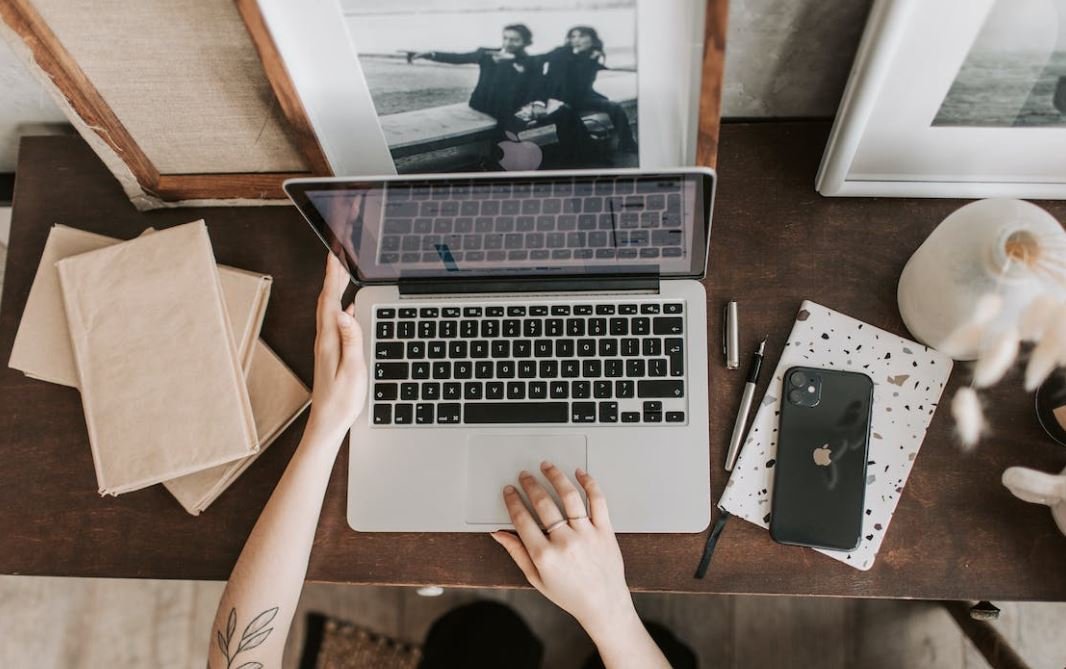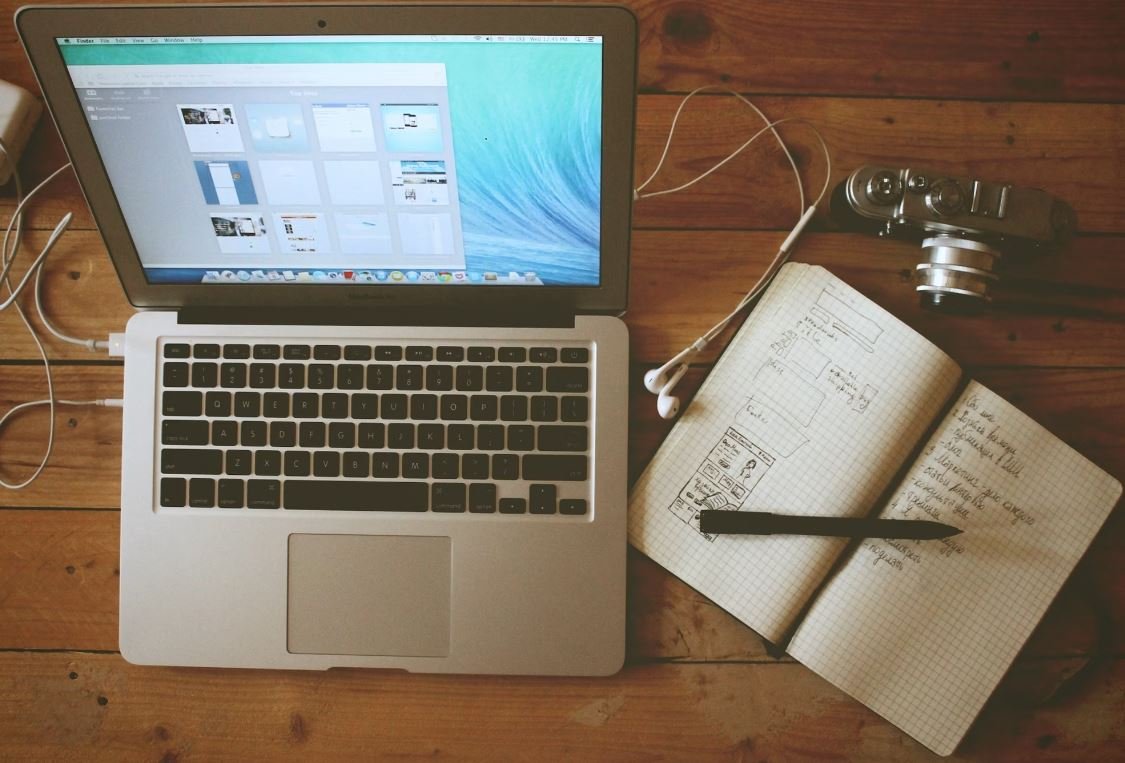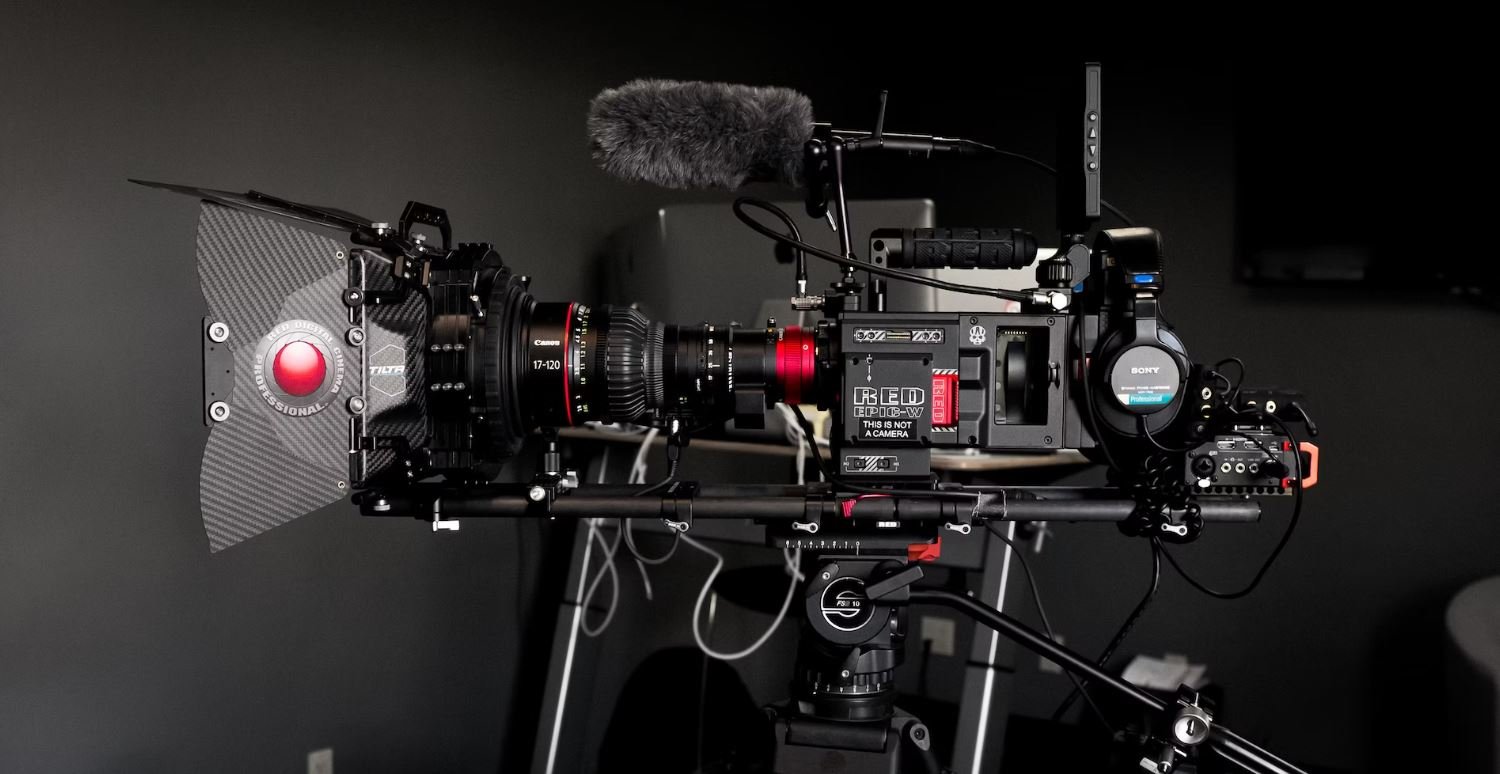What Equipment Is Needed for a Video Podcast
Creating a video podcast can be an exciting and innovative way to share your message with a larger audience. However, to produce a professional-quality podcast, you will need to invest in the right equipment. This article will outline the essential tools and gear required to produce a successful video podcast.
Key Takeaways:
- Investing in the right equipment is crucial for producing a professional-quality video podcast.
- Essential equipment includes a high-quality camera, a reliable microphone, proper lighting, and video editing software.
- Consider the specific needs of your podcast and budget when selecting the appropriate equipment.
1. Camera
A high-quality camera is the backbone of any video podcast. It is essential to choose a camera that supports high-definition (HD) video and offers good low-light performance. DSLR or mirrorless cameras are popular choices among podcasters due to their superior image quality and versatility.
Investing in a camera with interchangeable lenses can provide flexibility in capturing different types of shots.
2. Microphone
Good audio quality plays a significant role in creating an engaging podcast experience. To ensure crystal-clear sound, it is crucial to invest in a reliable microphone. XLR microphones are popular among podcasters for their professional-grade sound quality. Consider your recording environment and whether you need a microphone with noise-canceling or directional features.
A condenser microphone can capture subtle nuances in voice and instrument recordings.
3. Lighting
Lighting is often overlooked, but it can make a significant difference in the overall quality of your video podcast. Proper lighting enhances visual clarity and ensures your audience can clearly see the presenter and any props or visual aids. Consider investing in softbox lighting for a professional-level setup that helps to eliminate harsh shadows and creates a more flattering appearance.
4. Tripod/Mount
Stabilizing your camera is essential to avoid shaky or unsteady footage. A tripod or a camera mount will provide stability and allow you to position the camera at the desired angle. This is especially important if you plan to record episodes with minimal movement or if you have multiple cameras in use.
A gimbal can provide smooth tracking shots and eliminate camera shake during movement.
| Recommended Equipment | |
|---|---|
| Camera | DSLR or Mirrorless |
| Microphone | XLR Condenser |
| Lighting | Softbox |
| Tripod/Mount | Stable Tripod or Gimbal |
5. Acoustic Treatments
Acoustic treatments can significantly improve the audio quality by reducing echoes and background noise. Consider adding soundproofing panels or foam to your recording space to create a controlled environment. This is especially important if you are recording in a room with hard surfaces or in a noisy environment.
6. Video Editing Software
After recording your podcast, you will need reliable video editing software to fine-tune the footage and add any necessary visual effects or overlays. Popular options for video editing software include Adobe Premiere Pro, Final Cut Pro, and DaVinci Resolve. Choose software that aligns with your skill level and budget.
Adding animated text and graphics can enhance the visual appeal of your podcast.
| Video Editing Software | Price |
|---|---|
| Adobe Premiere Pro | $20.99/month (subscription) |
| Final Cut Pro | $299.99 (one-time purchase) |
| DaVinci Resolve | Free (with optional paid version) |
7. Additional Equipment
Depending on the complexity and requirements of your podcast, you may need additional equipment such as an audio mixer, a green screen setup for virtual backgrounds, or a teleprompter to aid in reading scripts. Assess your podcast’s specific needs and budget before investing in any additional gear.
8. Continuous Learning
Creating a successful video podcast requires ongoing dedication to improving your skills and staying updated with the latest trends and technologies. Stay connected with the podcasting community, attend workshops or webinars, and continue learning to refine your podcasting skills and deliver the best content to your audience.
By consistently adapting to changing trends, you can stay ahead of the competition and provide valuable content to your viewers.
| Popular Video Podcasting Software | |
|---|---|
| Zoom | Video Conferencing Software |
| OBS Studio | Free and Open Source |
| StreamYard | Live Streaming and Recording |
Creating a successful video podcast requires investing in the right equipment and continuously refining your skills. By carefully selecting a high-quality camera, reliable microphone, adequate lighting, and video editing software, you can produce professional video podcasts that engage and captivate your audience. Remember to consider your podcast’s specific needs and budget when making equipment choices and stay committed to continuous learning in this exciting and dynamic field.

Common Misconceptions
Misconception 1: Expensive camera equipment is necessary for a good video podcast
One common misconception about video podcasting is that you need expensive camera equipment to create a high-quality result. However, this is not necessarily the case. While professional-grade equipment can certainly enhance the production value of your podcast, you can achieve impressive results using more affordable alternatives.
- Basic DSLR or mirrorless camera
- Smartphone with a good camera
- Webcam with good video quality
Misconception 2: A professional studio setup is required
Another misconception is that you need a professional studio setup for a video podcast. While having a dedicated studio space can provide benefits like soundproofing and better lighting control, it is not a requirement. You can easily create a professional-looking setup at home with some simple adjustments to lighting, background, and audio.
- Simple home recording studio setup
- Good lighting equipment or natural light sources
- Decent quality microphone
Misconception 3: Technical knowledge is a must
Many people believe that extensive technical knowledge is necessary to start a video podcast. While being familiar with video editing software and other technical aspects can be helpful, it is not a prerequisite. There are user-friendly editing tools available that make the process easier, and you can learn the required skills as you go along.
- Beginner-friendly video editing software
- Online tutorials and resources for learning
- Support from podcasting communities/forums
Misconception 4: Expensive audio equipment is essential
Some individuals mistakenly believe that you need expensive audio equipment to produce a high-quality video podcast. While good audio is crucial for a podcast, you don’t have to break the bank to achieve it. There are reasonably priced microphones and audio interfaces available that can deliver professional-grade sound.
- Affordable condenser or dynamic microphone
- Audio interface with decent preamps
- Pop filter and microphone stand
Misconception 5: Lengthy recording sessions are required
Lastly, there is a misconception that video podcast episodes must be recorded in lengthy sessions. However, this is not always the case. You can break your recordings into smaller segments, allowing for more efficient editing and easier scheduling. This flexibility can help alleviate the pressure of longer recording sessions.
- Flexible recording schedule
- Segmented recording sessions for better focus
- More manageable post-production process

Introduction
Video podcasts have become increasingly popular in recent years as a way for content creators to engage with their audience. However, to create a professional-looking video podcast, several pieces of equipment are needed. In this article, we will explore ten essential items required for a video podcast and provide verifiable data and information in easy-to-read and interesting tables.
The Camera
A high-quality camera is crucial for capturing clear and visually appealing video content. Here is a table illustrating some popular camera options for video podcasting:
| Camera | Resolution | Price |
|---|---|---|
| Sony A7 III | 4K | $1,999 |
| Panasonic Lumix GH5 | 4K | $1,297 |
| Canon EOS 90D | 4K | $1,199 |
The Microphone
Clear and crisp audio is essential for a video podcast to ensure an enjoyable listening experience. Here are some popular microphones that deliver excellent sound quality:
| Microphone | Type | Price |
|---|---|---|
| Audio-Technica AT2020 | Condenser | $99 |
| Rode NT-USB | Condenser | $169 |
| Shure SM7B | Dynamic | $399 |
Lighting Equipment
Proper lighting can greatly enhance the overall quality of your video podcast. Take a look at some popular lighting equipment options:
| Lighting Kit | Type | Price |
|---|---|---|
| Neewer 660 LED Video Light Kit | LED | $119 |
| Godox SL-60W | LED | $135 |
| Elgato Key Light | LED | $199 |
Backdrop Options
The backdrop of your video podcast can help create an appealing and professional environment. Consider these popular backdrop options:
| Backdrop | Type | Price |
|---|---|---|
| Green Screen | Portable | $49 |
| Muslin Cloth Backdrop | Fabric | $69 |
| Brick Wall Backdrop | Vinyl | $89 |
Video Editing Software
To create engaging and professional video podcasts, editing software is essential. Here are some widely used video editing software options:
| Software | Price |
|---|---|
| Adobe Premiere Pro | $20.99/month |
| Final Cut Pro X | $299.99 |
| DaVinci Resolve | Free |
Camera Tripods
A sturdy tripod ensures a stable and professional-looking video podcast. Take a look at some popular tripod options:
| Tripod | Height | Price |
|---|---|---|
| Manfrotto MT190XPRO4 | 63 inches | $232 |
| Vanguard Alta Pro 263AB | 70 inches | $179 |
| Joby GorillaPod 5K Kit | 15.2 inches | $159 |
Video Recording Software
Video recording software allows you to capture and save your video podcast. Here are some popular options:
| Software | Price |
|---|---|
| Open Broadcaster Software (OBS) | Free |
| XSplit Broadcaster | $24.95/month |
| Camtasia | $249.99 |
Soundproofing Materials
Reducing background noise is essential for maintaining audio clarity. Here are some popular soundproofing materials:
| Material | Type | Price |
|---|---|---|
| Audimute Sound Absorption Sheets | Acoustic Panels | $99 (2-pack) |
| Green Glue Compound | Damping Compound | $19.99 (1 tube) |
| Auralex Studiofoam Panels | Studio Foam | $159 (12-pack) |
Streaming Equipment
If you plan to stream your video podcast live, specific equipment is required. Consider these popular options:
| Equipment | Type | Price |
|---|---|---|
| Elgato Stream Deck | Control Surface | $149 |
| Elgato Cam Link 4K | Video Capture Card | $129 |
| Blackmagic Design ATEM Mini | Live Production Switcher | $295 |
Conclusion
In this article, we have explored ten essential pieces of equipment needed for a video podcast. From high-quality cameras and microphones to lighting equipment and streaming tools, each element plays a crucial role in creating a professional and engaging video podcast. By investing in the right equipment and utilizing the appropriate software, content creators can produce compelling and visually appealing video podcasts that captivate and entertain their audience.
Frequently Asked Questions
What is a video podcast?
A video podcast is a digital video or multimedia file that is made available for streaming or downloading through the internet. It is similar to a traditional audio podcast, but instead of only audio, it includes visual content.
Why should I start a video podcast?
Video podcasts are becoming increasingly popular as they allow you to engage with your audience in a more immersive and visually appealing way. They can help you reach a wider audience, build your brand, and provide valuable content to your viewers.
What equipment do I need to start a video podcast?
To start a video podcast, you will need the following equipment:
- A high-quality video camera
- A tripod or stabilizer
- Audio recording equipment (e.g., microphone, audio mixer)
- Lighting equipment
- A computer or laptop with video editing software
- A reliable internet connection
What kind of video camera should I use?
It is recommended to use a high-quality video camera that has good low-light performance, image stabilization, and the ability to record high-resolution videos. Some popular options include DSLR cameras, mirrorless cameras, or even smartphones with good video capabilities.
Do I need a separate microphone for recording audio?
Yes, using a separate microphone specifically designed for recording audio will significantly improve the sound quality of your podcast. Options include USB microphones, XLR microphones, and lapel microphones.
What kind of lighting equipment should I use?
For video podcasts, it is important to have proper lighting to ensure clear and well-lit footage. Softbox lights, LED panel lights, or ring lights are popular choices for video podcasting and can help eliminate shadows and provide even lighting.
Which video editing software is recommended?
There are various video editing software options available depending on your budget and expertise. Some popular choices include Adobe Premiere Pro, Final Cut Pro, iMovie, and Davinci Resolve. Choose one that suits your needs and has the necessary features for editing your podcast.
Should I invest in a dedicated recording space or studio?
Having a dedicated recording space or studio can greatly enhance the production quality of your video podcast. However, it is not always necessary, especially when starting out. You can create a suitable recording environment by using sound-absorbing materials, setting up a corner in your room, or using portable recording booths.
What should be the ideal length of a video podcast?
The ideal length of a video podcast depends on the content you are providing and your target audience. While there is no strict rule, it is generally recommended to keep it between 10 to 60 minutes. However, remember that the content should be engaging and valuable to your viewers, regardless of the duration.
How do I promote my video podcast?
There are several ways to promote your video podcast:
- Share it on social media platforms
- Collaborate with other podcasters or influencers
- Utilize email marketing
- Optimize your podcast’s metadata for search engines
- Engage with your audience through comments and feedback


Leave a Reply